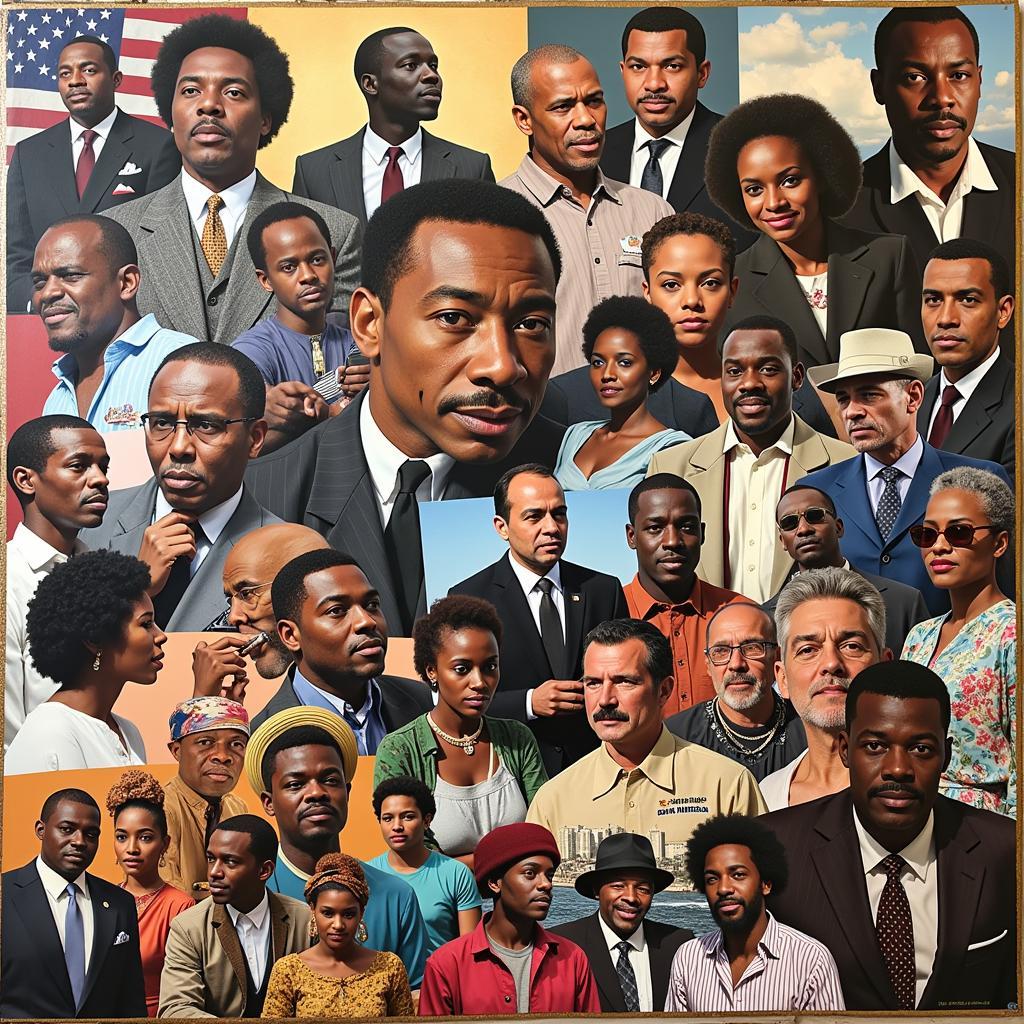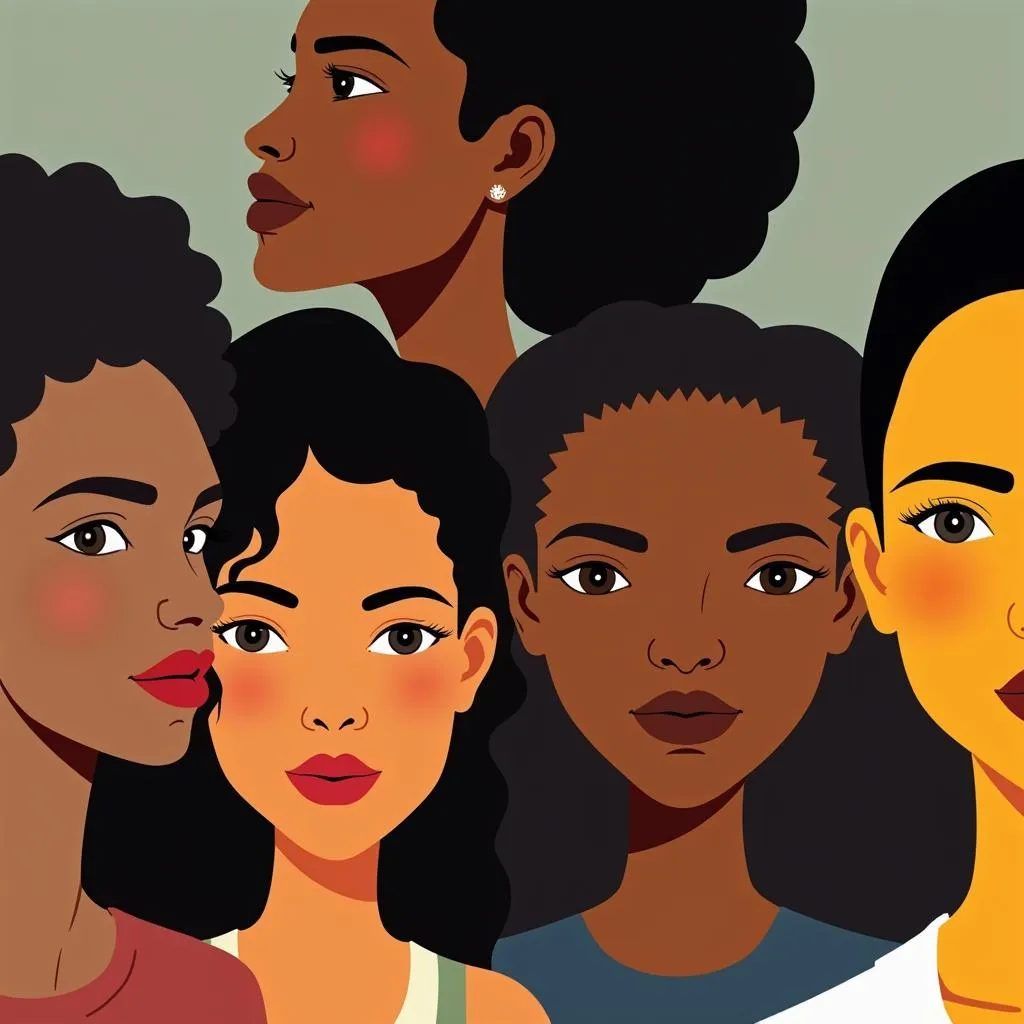Delving into the Rich Tapestry of African American Culture
African American culture is a vibrant and multifaceted expression of identity, rooted in a rich history of resilience, creativity, and resistance. From the soulful rhythms of blues and jazz to the eloquent prose of literary giants, from the vibrant hues of the Black Arts Movement to the culinary delights of soul food, African American culture has left an indelible mark on the global landscape. Understanding the characteristics of this dynamic culture is crucial for fostering appreciation, respect, and a deeper understanding of its impact on society.
The Historical Roots of African American Culture: A Foundation of Resilience
The tapestry of African American culture is intricately woven with threads of resilience, forged in the crucible of slavery and oppression. The forced migration from Africa to the Americas brought with it a diverse range of traditions, languages, and beliefs that were subsequently reshaped and reinterpreted within the context of enslavement. The resilience of the African spirit manifested in various forms, including:
- Oral storytelling: As a means of preserving their heritage and passing down knowledge, enslaved Africans relied heavily on storytelling, with tales often infused with coded messages of hope and resistance.
- Music and dance: Music served as a powerful tool for expression, fostering community and providing solace in the face of hardship. From spirituals to work songs, music provided a shared language that transcended the boundaries of language and cultural differences.
- Religion: Religion played a central role in the lives of enslaved Africans, providing a spiritual refuge and a source of strength. The fusion of African and Christian beliefs gave rise to unique forms of worship and spiritual practices.
The Legacy of the Civil Rights Movement: A Turning Point for African American Culture
The Civil Rights Movement of the mid-20th century marked a significant turning point in African American history and culture. Fueled by the unwavering pursuit of equality and justice, the movement gave rise to a new generation of activists, artists, and thinkers who challenged the status quo and demanded a more just society. Key features of the movement included:
- Black Power: This movement embraced Black pride, self-determination, and the celebration of African heritage.
- Art as activism: African American artists utilized their work to express their experiences, amplify their demands, and challenge societal norms.
- The rise of Black literature and music: Writers such as James Baldwin and Toni Morrison provided powerful narratives about the Black experience, while musicians like Nina Simone and Marvin Gaye used their music to advocate for social change.
Key Characteristics of African American Culture: A Tapestry of Expression
African American culture is characterized by its dynamic and evolving nature, reflecting the diverse experiences and aspirations of its people. Some key characteristics include:
- Strong emphasis on family and community: Family bonds are deeply cherished, and communities play a vital role in providing support and nurturing individual growth.
- Celebration of spirituality and faith: Religion remains a central pillar of African American culture, providing comfort, guidance, and a sense of belonging.
- Oral tradition and storytelling: Stories are passed down through generations, preserving cultural heritage and fostering a sense of shared history.
- A rich musical heritage: African American music has profoundly influenced global music genres, from blues and jazz to hip-hop and R&B.
- Strong sense of creativity and artistic expression: From visual arts to literature to dance, African Americans have made significant contributions to the global artistic landscape.
- Resilience and determination: Despite facing numerous challenges throughout history, African Americans have shown remarkable resilience and determination in the face of adversity.
- Commitment to social justice: There is a deep-rooted commitment to fighting for equality, justice, and human rights.
Understanding African American Culture: A Window into the Human Spirit
Delving into African American culture offers a window into the human spirit’s resilience, creativity, and unwavering pursuit of justice. It provides a powerful reminder that culture is a living, breathing entity, constantly evolving and adapting to new challenges and opportunities. By embracing its complexities, we can gain a deeper understanding of its impact on the world and foster a more inclusive and equitable society.
African American Culture: Frequently Asked Questions
What are some common misconceptions about African American culture?
“A common misconception is that African American culture is monolithic. In reality, it is incredibly diverse, reflecting the varied backgrounds and experiences of its people.” – Dr. Aaliyah Jones, Cultural Anthropologist
What are some ways to learn more about African American culture?
“Engaging with African American art, literature, music, and history is a great starting point. Visiting museums, attending cultural events, and engaging in open and respectful conversations with African Americans are also invaluable ways to gain a deeper understanding.” – Dr. Charles Washington, Historian
What are some ways to celebrate and support African American culture?
“Supporting Black-owned businesses, attending African American cultural events, and amplifying the voices of African American artists and writers are all powerful ways to celebrate and support the vibrant culture.” – Ms. Maya Williams, Community Activist
What are some resources for learning more about African American culture?
“There are numerous online resources, libraries, and cultural institutions that offer valuable information and insights. The Smithsonian National Museum of African American History and Culture, the Schomburg Center for Research in Black Culture, and The National Endowment for the Arts are great places to begin.” – Dr. James Lawson, Art Historian
How can I learn about the history of African American music?
“Reading books, watching documentaries, and listening to music from various eras and genres can offer a rich understanding of the evolution of African American music. Exploring the works of iconic artists like Ella Fitzgerald, Miles Davis, Aretha Franklin, and Stevie Wonder can provide a window into this rich musical legacy.” – Mr. Marcus Green, Music Historian
What are some ways to celebrate African American Heritage Month?
“Learning about historical figures, reading books by African American authors, attending cultural events, and supporting Black-owned businesses are great ways to celebrate African American Heritage Month.” – Ms. Sarah Johnson, Cultural Advocate
How can I learn about the contributions of African Americans to science and technology?
“Exploring the contributions of scientists like Mae Jemison, Katherine Johnson, and George Washington Carver, and reading about the history of Black inventors and their innovations are great ways to learn about African American achievements in STEM fields.” – Dr. John Robinson, Science Historian
Understanding and celebrating African American culture is a journey of continuous learning and appreciation. Through engaging with its various expressions, we can gain valuable insights into the human spirit and work towards building a more inclusive and equitable world.




